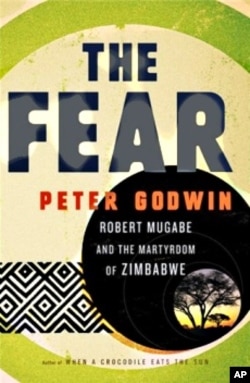Though he has covered wars and conflicts, journalist Peter Godwin wasn't prepared for the surreal mix of desperation and hope he encountered when he returned to Zimbabwe, his broken homeland, in 2008.
After ruling for nearly 30 years, President Robert Mugabe finally lost an election. However, instead of conceding power, he launched a brutal campaign of terror to stay in office. With most foreign correspondents banned, Godwin was one of the few observers to bear witness to the period locals call "The Fear." His new memoir recounts that experience.
Liberators' old boys' club
Mugabe led a civil war against the white minority government in Rhodesia, as Zimbabwe was known then. Since its independence in 1980, the eloquent, highly educated 87-year-old has been the country’s only president.
"There is a kind of liberators’ 'old boys' club,'" says Godwin, who was born and raised in Zimbabwe. He says those liberators’ parties are still in power in the southern African countries that fought anti-colonial wars. Godwin points to the South West Africa People’s Organization, SWAPO, in Namibia and the African National Congress, ANC, in South Africa.
"Mugabe says to people, 'No one can be a leader in Zimbabwe without having fought in the war.' Well, the war finished 30 years ago," says Godwin. "So you hear Mugabe talking to audiences about the war and you look at the youthful audience and no one in that audience was alive then. And of course that liberation war message does become weaker as the generations go on."
Consequently, the liberators begin to lose their support among the population. While Mugabe always managed to win elections, his government’s policies were increasingly unpopular, and the opposition won a majority of Parliamentary seats in the 2008 vote.
'The Fear'
Instead of conceding power, Mugabe forced a run-off, and used terror and intimidation tactics against the opposition party and its supporters.
Godwin went to Zimbabwe to cover the final results of the elections, and didn’t expect to see what he did.
"Mugabe and his militia, and the army and police helping, launched a campaign of torture on an industrial scale. Ironically they used the abandoned schools as a site for the torture bases," says Godwin. "So they would fan out into the villages and they would pick up opposition office holders, the party secretaries and chairmen at the village level even. They would often attack them, burn their houses down, and herd them into these torture bases. There they would torture them very,very severely."
Godwin interviewed hundreds of these men, when they finally were able to get to hospitals.
"Many of them, they were in such pain that they couldn’t lie down, or sit, or stand because the flesh and the skin on their back. They had been literally flayed alive," he says. "Some people were killed during the torture, but many more people were tortured and then were released to go back to their communities. And they acted as human billboards. They were advertisements for what happens to you if you oppose the regime."
According to Godwin, Mugabe's use of torture as a campaign tactic has lingering effects. "Once you’ve done something like this to people, it can condition them. The next time you threaten them, they know it is for real. Now as we gear up perhaps to new elections, which Mugabe is talking about holding either later this year or maybe early next year, people still remember what happened last time and they are afraid."
Profiles of courage
But not all of them are afraid. In his book, "The Fear: Robert Mugabe and the Martyrdom of Zimbabwe," Godwin shares dozens of stories of Zimbabweans who continued fighting for democracy despite having been tortured. One of those people was a man who had been arrested many times.
"In fact, we think he is the most arrested man in Zimbabwe. I said to him, ‘Don’t you sometimes think it’s enough already, maybe you should give it a rest.’ He said, ‘I tried to give up and just do a quiet life. I felt like I wasn’t doing what I should be doing, I had a duty to do this, I had a duty to help democracy to happen. I just felt empty.’"
In the book. Godwin writes of Chenjerai Mangezo, a candidate for the Bindura Rural District Council, who was brutally beaten by militants loyal to Mugabe.
He managed to hoist himself up a little so that he could look at his assailants, now lit against the newly emerging moon. And he said to them, ‘"ou had better be sure to kill me. Because if you don’t, I’m going to come after you, all of you. I know who you are.’"
Not only did he survive, Mangezo won his election.
"When he heard that they were having the first day of the local council, he was still in the hospital," says Godwin. "He was determined to be there. So he got people to load him into a pickup truck because he couldn’t bend his legs. They drove him down a bumpy road, several hours outside Harare. Some of the people who had assaulted him, you know Mugabe’s people, were there, and they were shocked to see him because they thought he died."
Godwin says it is that resilience which compelled him to write "The Fear." Zimbabweans already have functioning political institutions and the desire to pursue democracy. What they need and deserve now, he says, is fair elections.
